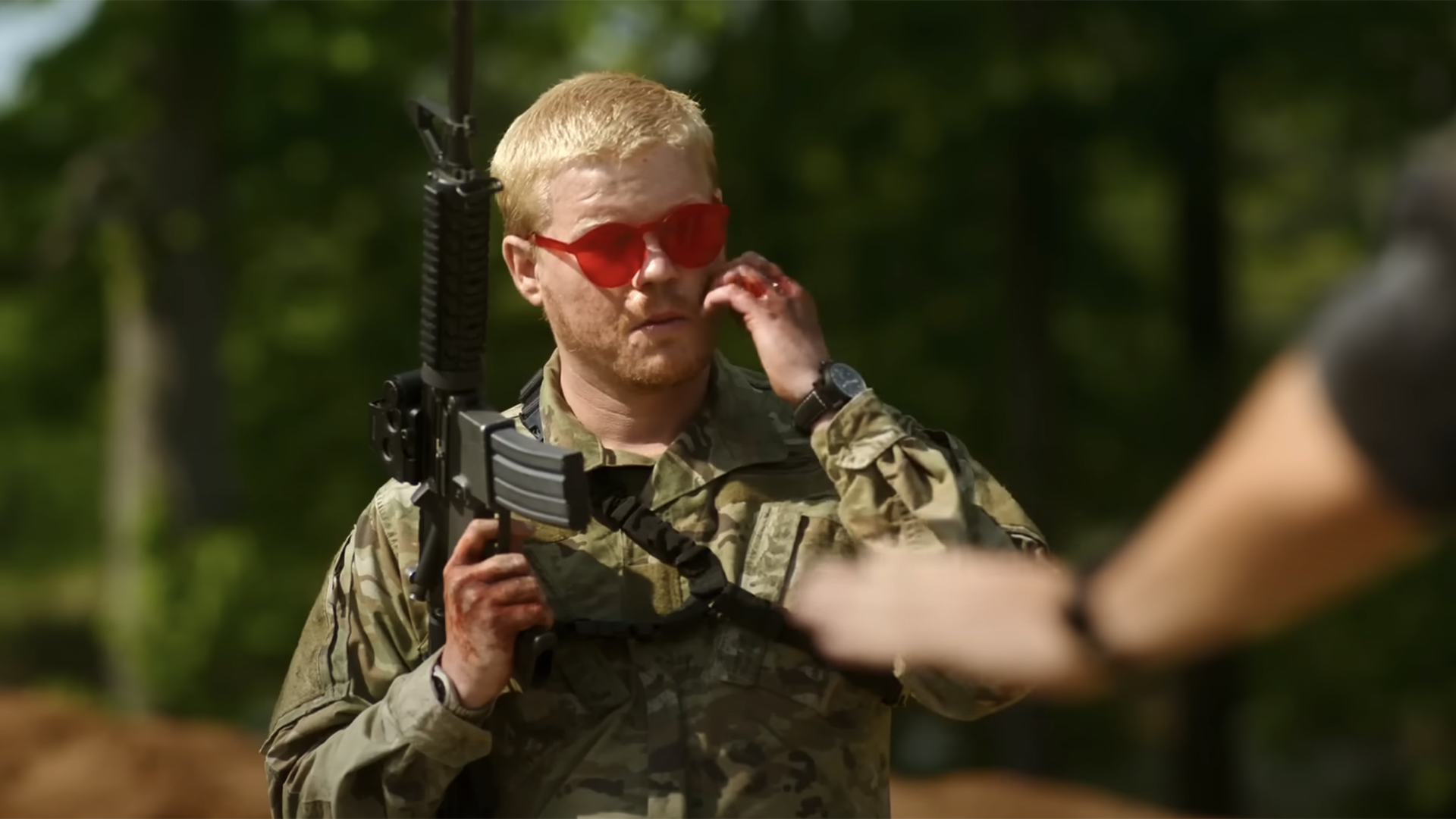

A new trailer for A24’s film Civil War gives a glimpse of the movie’s bleak prediction of the future, in which the United States has become balkanized by the worst internal conflict since 1865.
Civil War is scheduled to be released in spring, during the middle of what will likely be a contentious presidential election. And as the Jan. 6 Capitol Hill riot has shown, violence is a real possibility in our hyper-partisan political atmosphere.
This review will not delve into Civil War’s political overtones, nor will it endorse the current policies or rhetoric of any political party or candidate. There are more than enough pundits on cable news and social media, proving the axiom that opinions are like assholes: Everybody has one .
Instead, we will look at the question that Civil War poses: Can the same forces that have torn apart countries overseas such as Iraq, Syria, and Yemen destroy the United States as well?
We learn from Civil War’s trailer that 19 states have seceded from the union. Any U.S. service members who witnessed the ethnic cleansing in Iraq circa 2006 as that country dissolved along sectarian lines knows exactly what a real national divorce looks like.
Subscribe to Task & Purpose Today. Get the latest military news and culture in your inbox daily.
One thing that probably would not occur is California and Texas teaming up to form a confederation, which we learn from Civil War’s trailer is one of the film’s major plot points. Those two states are such opposites that you’d have a better chance of Russia and Ukraine forming an alliance than California and Texas agreeing on anything.
Still, in the dystopian future that Civil War portrays, several of the states that have succeeded likely host large military installations. It’s unclear from the trailer whether the U.S. military has split between the federal government and rebel forces. We certainly see plenty of CH-47 Chinooks, Humvees, and even an M1 Abrams tank, but it’s not clear from the trailer whether they are defending or attacking Washington, D.C. (There’s also a sequence where a flight of Air Force F-22s buzz overhead and — setting aside that a couple do barrel rolls for no obvious reason — there’s a clear audio of a propeller-driven plane as they pass by)
The notion of the American military splintering may be somewhat of a stretch, but we learned during the Defense Department’s mandatory COVID-19 vaccination program and the Afghanistan withdrawal that there are a whole lot of field-grade officers at the O-5 level who are willing to defy their chain of command if they deem it to be necessary.
From the trailer, it’s hard to say whether any side in Civil War can be called “good guys.” The president in the movie is on his third term, indicating the Constitution may not be applicable anymore. The president has also ordered the U.S. military to launch airstrikes against American citizens, which is hardly the action of a benevolent leader.
While it may be disturbing to consider a future in which the U.S. military is ordered to drop ordnance on American citizens, history is full of examples of loyal, patriotic armed forces turning against their fellow citizens under the pretense of law and order.
One of the key moments from the trailer happens when a man wearing military fatigues and holding a weapon asks characters, “What kind of an American are you?”
It is unlikely this dude is with the U.S. military because he is clearly not wearing the ear protection that saved so many American troops’ hearing during the Iraq and Afghanistan wars.
Still, the scene is disturbing because it argues that the same internal dissertation that destroyed Syria and Iraq could happen here.
Actress Kirsten Dunst’s character underscores that theme. She plays a photojournalist – because women in war movies have to be journalists – who reflects on how the United States has not learned from wars abroad.
“Every time I survived a war zone, I thought I was sending a warning home: Don’t do this,” she says. “But here we are.”
It reminded me of a conversation I had with a friend in Croatia a few years ago, who asked if each state’s National Guard could be used to fight the federal government in a civil war. I quickly realized it wasn’t so much a question as a warning from someone who grew up in a country called Yugoslavia that no longer exists: It happened here, it can happen to you.
The latest on Task & Purpose
- First female active-duty soldier graduates from sniper school
- 5 question only a veteran would ask Medal of Honor recipient Michael Thornton
- Navy fires recruiting district commanding officer
- Army tanker vet facing cancer gets a final wish: send one last round
- Army employee indicted for stealing $100 million from military youth program
